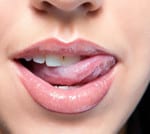 Get expert diagnosis and treatment of bleeding gums from City of Leeds dentists
Get expert diagnosis and treatment of bleeding gums from City of Leeds dentists
Bleeding gums can be a common occurrence when brushing your teeth or flossing. If the problem persists then you should inform your dentist so that any problems can be dealt with. Bleeding from the gums might be an early sign of tooth decay which, if not dealt with properly, can lead to tooth loss.
The most common form of gum disease is a condition known as gingivitis and can manifest itself with bleeding gums. You ought to inform your dentist if this happens to you so that the problem can be treated. Antibiotics might be required but in most cases it is necessary only to tighten up your home oral hygiene routine.
It is crucial that gingivitis is dealt with and eliminated because it can lead to periodontitis. This is an advanced form of gum disease which causes the bones holding the teeth in place to become inflamed. This can end in the loss of teeth themselves, a painful process which will likely involve invasive surgery.
Looking for a cosmetic dentist? Leeds dentists are here to help
As well as following advice in recommended home oral hygiene habits, you should also visit your City Dental Leeds dentist every six months so that your mouth can be examined. If you find that your gums are bleeding then you should make an additional appointment rather than waiting for the next check up. Bleeding gums might only be the result of you brushing with too much vigour, but it could signal that something worse is beginning to take hold and your dentist needs to be kept aware of such developments.











